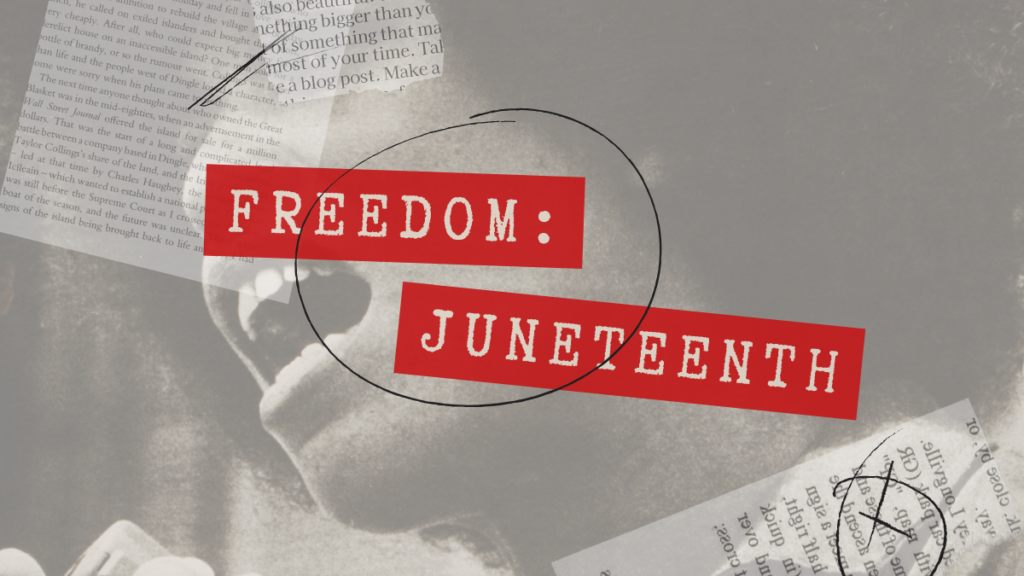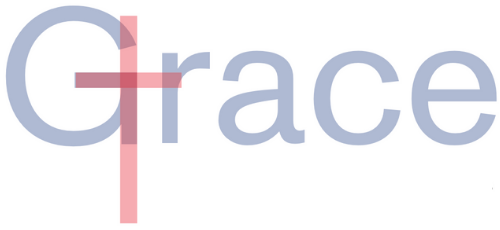
From an essay on The Historical Legacy of Juneteenth posted on the Smithsonian Institute’s National Museum of African American History and Culture website:
On the eve of January 1, 1863, enslaved and free African Americans gathered in churches and private homes all across the country awaiting news that the Emancipation Proclamation had taken effect. At the stroke of midnight, prayers were answered as all enslaved people in Confederate States were declared legally free. Union soldiers, many of whom were black, marched onto plantations and across cities in the south reading small copies of the Emancipation Proclamation spreading the news of freedom in Confederate States. Only through the Thirteenth Amendment did emancipation end slavery throughout the United States.
But not everyone in Confederate territory would immediately be free. Even though the Emancipation Proclamation was made effective in 1863, it could not be implemented in places still under Confederate control. As a result, in the westernmost Confederate state of Texas, enslaved people would not be free until much later. Freedom finally came on June 19, 1865, when some 2,000 Union troops arrived in Galveston Bay, Texas. The army announced that the more than 250,000 enslaved black people in the state were free by executive decree. This day came to be known as “Juneteenth,” by the newly freed people in Texas.
Today is Juneteenth. We are less than five days away from our Summer Service Immersion to Alabama, where Michael Roche (our Junior Warden!) and I will take 9 students to explore ecological justice and civil rights in Parrish and Birmingham. Before we go, I have asked students to watch at least one film on civil rights and being black in America, and suggested Ava DuVernay’s 2016 documentary “13th”, about the Thirteenth Amendment mentioned above. The film, which I used to teach at Justin Siena High School, contends that although the 13th amendment outlawed slavery over 150 years ago, it was essentially allowed to continue via the side door of mass incarceration.
Why are we going to Alabama? Because after 25+ years of leading high school and college students on service immersions, I have observed and learned that empathy is the vehicle for change. It’s not ideas. It’s not laws. It’s empathy. A change of heart that comes from lived experience in place, in person. I cannot work to change an unjust system without first transforming the systems inside me that want to “other” another person, to exclude, to make them less than, to put me on top and them on the bottom. I have to want for them just what I want for myself, and everyone I love, when I stand in their shoes and feel the world the way they feel it. If there is discomfort when I wear their shoes, it is then that my heart begins to turn. The deep experience of empathy is when I really “get” how much I belong to everyone else God loves just as much as God loves me, and I let my heart break and repair and fill and overflow. In response, I find that I want justice. “Injustice anywhere is a threat to justice everywhere,” wrote Martin Luther King from a jail in the very city we will visit next week. “We are caught in an inescapable network of mutuality, tied in a single garment of destiny. Whatever affects one directly, affects all indirectly.” We all want to be free.
St. Paul wrote to the new Christians in Galatia, and reminded them that “it is absolutely clear that God has called you to a free life. Just make sure that you don’t use this freedom as an excuse to do whatever you want to do and destroy your freedom. Rather, use your freedom to serve one another in love; that’s how freedom grows. For everything we know about God’s Word is summed up in a single sentence: Love others as you love yourself. That’s an act of true freedom. If you hurt and ravage each other, watch out—in no time at all you will be annihilating each other, and where will your precious freedom be then?” (Gal 5:13-15, The Message). Indeed. It’s no wonder that Dr. King sustained his work for freedom on the foundation of stories and love letters from the New Testament and that he wrote that letter from jail to inspire all Christian churches to join him.
Martin Luther King was not about making the United States a Christian nation. Rather, he wanted to use Christianity to make this a JUST nation. A nation of people in “right relationship” with God, with others, with shared resources and all of the created world.
I find that justice is, as it has been said, “JUST US.” It’s just us over here, trying to build a world that is way more resurrection, way more feeding of the thousands, than it is the cross. Way more freedom than enslavement and incarceration. Just us in St. Helena, just us in Alabama. Just us. We belong to each other, and thank goodness, because we need one another. Not a single one of us is free if a single one of us is NOT free.
Today is a day of celebration, made a federal holiday by President Biden on June 17, 2021 as a time for all Americans to reflect on and lift up the beauty of a life that is free. On this Juneteenth, let us go out and love everyone right out there in public today. Let us want for others what we want for ourselves, let us celebrate the end of the immoral institution of slavery in our country, and work to melt the patterns of enslavement that still exist among us wherever we encounter them. Let us deeply know we are free whenever we understand that there is no trouble, no fear, no uncertainty that will dominate a love that was powerful enough to transform death back into life.
Michael, and myself, and all nine students who will take this trip next week could really use your prayers and your open ears for all of our stories when we return home.
In the blessing of freedom,
Sarah Christopher
Associate Pastor

Recent Comments